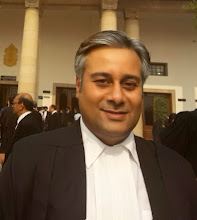Waiver of Cooling-Off Period for Mutual Consent Divorce in India
The concept of mutual consent divorce was introduced in India to provide an amicable and less adversarial way for couples to end their marriage when they find it irreparable. Under Section 13B of the Hindu Marriage Act, 1955, and similar provisions in other personal laws, couples can file for divorce by mutual consent if they have been living separately for at least one year and agree that the marriage cannot be sustained. However, one of the most debated aspects of this provision is the mandatory “cooling-off period” of six months between the first and second motions for divorce. This raises the question: Can the cooling-off period for mutual consent divorce in India be waived off?
Understanding the Cooling-Off Period
The cooling-off period is a statutory requirement designed to give couples time to reconsider their decision to divorce. It acts as a safeguard to ensure that the decision to dissolve the marriage is not taken in haste or under emotional duress. The law mandates that the second motion for divorce cannot be filed earlier than six months from the date of the first motion, but it must be filed within eighteen months. During this period, couples are expected to reflect on their relationship and explore the possibility of reconciliation.
Judicial Interpretation and Exceptions
While the cooling-off period is a legal requirement, Indian courts have, in certain cases, exercised their discretionary powers to waive or reduce this period. The Supreme Court of India, in the landmark case of Amardeep Singh vs. Harveen Kaur (2017), held that the cooling-off period is not mandatory and can be waived in exceptional circumstances. The court emphasized that the primary objective of the cooling-off period is to enable reconciliation, but if the court is satisfied that all efforts at reconciliation have failed and the marriage is irretrievably broken, the waiting period can be dispensed with.
Courts have often waived the cooling-off period in cases where:
The parties have already been living separately for a significant period, often much longer than the statutory one year.
There is no possibility of reconciliation, and the marriage has completely broken down.
Both parties have mutually agreed to waive the cooling-off period and are seeking an expedited divorce.
There are compelling reasons, such as mental or physical trauma, domestic violence, or remarriage prospects, that necessitate an early dissolution of the marriage.
Practical Challenges
Despite judicial precedents, the waiver of the cooling-off period is not automatic and is granted at the discretion of the court. Couples seeking to waive this period must present strong and convincing reasons to the court. Additionally, the process may vary depending on the jurisdiction and the judge’s interpretation of the facts. This lack of uniformity can lead to delays and uncertainty for couples seeking a swift resolution.
The Need for Legislative Reform
The cooling-off period, while well-intentioned, often prolongs the emotional and financial burden on couples who have already made an informed and mutual decision to part ways. In many cases, the mandatory waiting period serves no practical purpose, especially when reconciliation is not feasible. There is a growing demand for legislative reform to make the cooling-off period optional or to reduce its duration, particularly in cases where the marriage has irretrievably broken down.
Conclusion
The cooling-off period for mutual consent divorce in India can indeed be waived off, but only under exceptional circumstances and at the discretion of the court. While judicial precedents have provided some flexibility, the process remains subjective and inconsistent. To address these challenges, there is a pressing need for legislative amendments that balance the objective of reconciliation with the practical realities of irretrievable marital breakdowns. Until such reforms are implemented, couples seeking to waive the cooling-off period must rely on skilled legal representation to present a compelling case before the court.
At Vivek Nasa Associates, we specialize in handling complex divorce cases and have successfully assisted numerous clients in obtaining waivers for the cooling-off period. Our expertise lies in navigating the legal intricacies and presenting robust arguments to ensure a swift and amicable resolution for our clients.
Contact Vivek Nasa Associates to Schedule a consultation for expert Advice on Mutual Consent Divorce and Option of Waiver of 6 month Cooling off period in your case.
Phone: +91–9811896536
Website: www.viveknasa.com
Location — I : Chamber no 11, 2nd Floor, Lawyer Chambers Block A, District & Sessions Court Gurgaon
Location -II : Chamber no 8, Near Gate no 7, District & Sessions court Gurgaon.
Disclaimer: This article is for informational purposes only and does not constitute legal advice. For specific legal guidance, please consult a qualified attorney.

